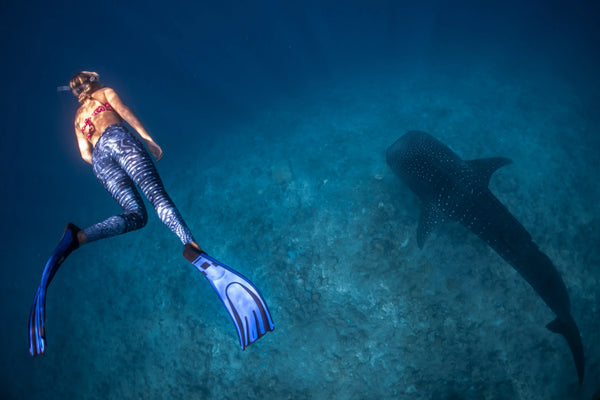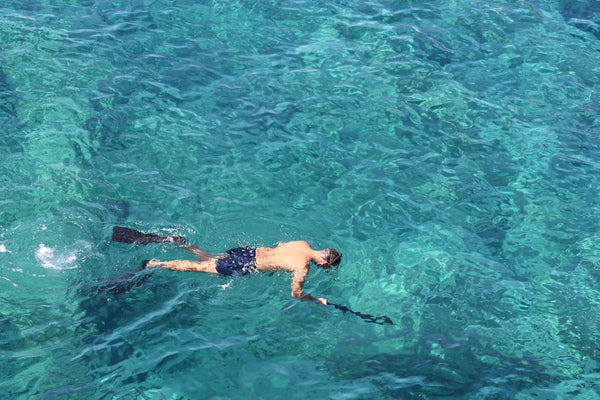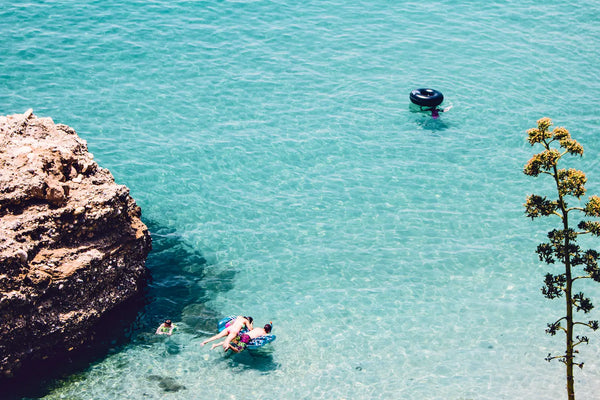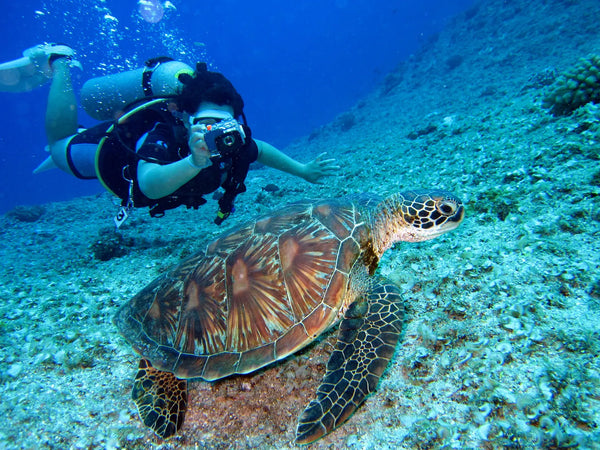In the eyes of ordinary tourists, snorkeling is compared with deep-water diving that needs to be verified. Snorkeling only needs to wear a life jacket, a mask, a breathing tube and fins to float on the water, which is safe and simple. The snorkeling services on various islands around the world are as numerous as a feather, and the quality has a long history. Some snorkeling guides send a simple set of equipment to the divers, and they go directly to the sea.
It is precisely because of this carelessness that many snorkeling accidents occur every year. In fact, snorkeling is not as easy as we think - snorkeling is not only an activity on the water surface, but also includes a series of skills such as floating, diving, ascending, draining, breathing, etc. Therefore, before you are ready to enjoy the pleasure of snorkeling, you must not "despise" these. You must understand them thoroughly and make preparations in many aspects to avoid unnecessary harm to yourself or your family.
The dangers in snorkeling include many kinds from ocean currents, underwater objects or marine organisms. However, as long as safe areas are selected, safe equipment and training are used, and health and safety precautions are taken, many dangers in snorkeling can be reduced.

- Drowning
In the process of snorkeling, many people will cause serious drowning accidents due to improper use of snorkeling equipment. When you breathe freely in the water and enjoy the magnificent scene in the water, you may not expect that the breathing tube and the face mirror will suddenly enter the water. There are many reasons for this water inflow, such as not wearing the face mirror correctly, or not biting the breathing tube tightly, or even the small sea waves on the sea surface pouring into the breathing tube. These can cause severe cough. You want to stand up and lift your head out of the sea, but you find that you can't do it. You can't help but panic, Thereby causing a drowning accident.
First of all, you should correctly wear snorkeling tools, pay attention to the problems in this village when buying a mask, do not let your hair or other foreign matters get caught in the mask, and then firmly bite the breathing tube. Second, learn to change your breathing habits before going into the water - breathe with your mouth (you can also buy a full face mask directly, so you can avoid breathing with your mouth). When choking occurs, don't panic. Remember to expose your head to the sea immediately. A more professional way is to drain the face mirror and breathing tube in time, such as through jet drainage, so that the air in your lungs can be suddenly exhaled from your mouth. Before launching, it is best to have a coach teach you on the spot and Practice for many times until you can master the skills.

- Ocean current
Unlike any other body of water, ocean currents exist in the ocean. The ocean current is constantly changing, so remember to be prepared before launching to ensure safe swimming.
Only a true understanding of how ocean currents operate in the ocean can help you stay safe while snorkeling. Local people's knowledge of this area can also provide useful information about the current behavior. However, the most important thing is to be prepared in advance to change the direction of water flow when swimming.
- Overheating
Under the sunshine, the body will get hotter and hotter. The farther south you go, the warmer the water will be. If you feel like wearing a diving suit to prevent other risks, your body may warm up faster.
Overheating of the body leads to increased blood flow to the skin, which causes the heart to work harder; This can also lead to dizziness and nausea, which you don't want to suffer underwater. Please be sure to carry a large amount of fresh water with you during the outing. Even if you may not feel thirsty, you should keep water! Avoid the danger caused by dehydration.
Overheating can also lead to heat stroke, which is dangerous enough in dry land, but may be more deadly in water environment. It is important to have a rest when diving in warm waters. If you feel that you have become overheated, please stop snorkeling immediately.

- Be honest about your swimming ability
You must have a clear understanding of your swimming ability, especially in the ocean. Compared with the swimming pool, swimming under ocean currents, waves and other factors is a different experience, so you must be extremely careful in the ocean.
Although you can swim freely in the ocean without any help, you can quickly catch up with the speed of snorkeling. However, compared with your safety, this is not important. For inexperienced people, it is safer to use floating to help you float safely on the water.
- Do not touch underwater organisms
The general principle in snorkeling is not to touch any creature, especially when we don't know what it is. Because marine animals are dangerous only when they feel they need to protect themselves. In addition, avoid contact with the ground. If this is necessary, proceed with care and gentleness. Three fingers should be enough. First, check whether there is anything that can make you afraid or hurt you.
Similarly, for corals, if you accidentally touch the coral, you may be injured. But if you avoid them, you won't get hurt! If this is something you really worry about, you can wear gloves or diving suits to protect yourself even if you don't touch it.
Of course, you can also ask local people what you should avoid, and they will be happy to help you.

Finally, the following 6 tips teach you how to avoid the risk of snorkeling:
- Find professional diving institutions and coaches to learn correct snorkeling skills, including mastering surface mirror drainage, breathing tube drainage, surface frog shoe kicking skills and first-aid skills;
- Beginners must wear life jackets or carry other floating equipment when snorkeling in the sea;
- Remember to wear bright and bright clothes or carry water surface signal devices to avoid the accident site cannot be accurately found in case of accident;
- Do not snorkel on the rough or strong water surface;
- Don't act alone, remember to walk with your companions, or at least let one person on the shore know his snorkeling plan and ask him to observe and respond on the shore;
- Even in the seemingly calm waters, you should wear fins to snorkel; Do not stay away from or swim out of the safety warning area when snorkeling near the shore or diving vessels.

